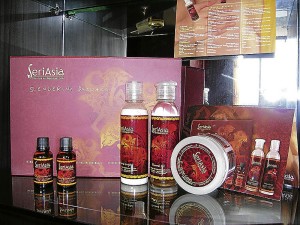Marketing challenges faced by cocoon businesses

ANTONIO’S restaurant in Tagaytay has become a travel destination. Photo by Ma. Esther Salcedo-Posadas
Certain businesses thrive on cocooning – a trend towards staying indoors (or away from the madding crowd), whether in your own home or elsewhere. Following are a few case examples on possible business hurdles outside the hive:
Antonio’s mystique
It’s not necessarily the cuisine that attracts; Antonio’s restaurant in Tagaytay has become much more, a travel destination. What used to be housed in two separate locations has now been combined into one address – Breakfast at Antonio’s is now located at the same place where Antonio’s fine dining restaurant resides. The estate of Chef Tony Boy Escalante lures many visitors especially on weekends or holidays, according to restaurant staff. Sometimes guests would arrive for lunch and linger until late afternoon.
“It’s really a destination with nice food, ambiance, and service,” says Operations Manager Johna Goma who started working for the restaurant in 2002 as a part-time reservations officer on weekends. She relates that the restaurant started as a hobby of Chef Escalante who loves to cook and entertain. He was a flight steward who eventually pursued culinary studies in Australia and eventually worked in the The Mandarin Oriental Hotel kitchen.
Article continues after this advertisementAntonio’s started as an intimate dining place for 60 persons that blossomed each year. At present, the restaurant can handle an ideal capacity of 250 guests while the adjacent wing Breakfast at Antonio’s has a capacity of 100 to 120 guests. The restaurant will be celebrating its ninth year and they are now promoting the destination as an events place for weddings or corporate functions.
Article continues after this advertisementStepping into Antonio’s is like entering a charmed environment. Traces of commercialism are avoided and music by Charlotte Church or other classical artists suggest the mood. It provides the visitor a sensual, other-worldly experience that is hard to find elsewhere. Perhaps it explains the destination’s popularity.
However, catering to a bigger market such as corporate events will demand a different set of expectations from customers – product standardization and efficient delivery may well compromise the restaurant’s homey and personal touch. It remains to be discovered how Antonio’s mystique will once again conquer hearts.
Cliffhouse hideaway
It’s an obscure, small inn with only four large rooms offering a 180-degree panoramic view of Taal volcano. Guests have a choice between an outdoor Jacuzzi and bathtub. The Inn at Cliffhouse Tagaytay follows a strict rule of allowing only four guests per suite, regardless of age, infants and nannies included. The place evokes exclusivity for those who are willing to pay.
Less than two years old, the inn hopes to attract honeymooners and others. However, with the growing commercialization (i.e. big hotels offering special discounts to rooms) in the city, it remains to be seen whether smaller establishments will thrive. For example, many high-rise hotels continue to be constructed and with bigger marketing budgets, they can also attract more by slashing prices. Leveling the playing field is a critical issue that the local government may wish to study and evaluate. After all, the charm of Tagaytay lies in its quaintness.
In a previous article, PDI’s Marcos de Guzman Jr. also cited Tagaytay’s overdevelopment, “The city used to have very strict building regulations but now the once green city has become a concrete jungle. Sooner or later, the cool breeze it has been known for will be gone because there will be more concrete than greenery.”
Perhaps it’s about time the whole country should take notice.
SeriAsia is a Malaysian brand (with local subsidiary) selling “spa at home” products that use a mushroom extract known as Ganoderma Lucidum. They claim to be organic and Halal-certified. The products were initially sold at Watson’s drugstore but marketers eventually discovered that actual experimentation helped sell more products, thus they started spa operations as a means of selling more.
While the spa experience introduces customers to the actual product, the question on many minds is whether the claims actually work. For example, the Slendering Package costs P5790 and the company flyer states, “2 inches erased from the waist in 4 weeks,” with clinical studies to prove the point. Furthermore, the slimming massage guarantees instant results, although day-after measurements could change.
The marketing challenge lies in convincing customers of the products’ effectiveness. Ultimately, repeat customers with success stories may give answers. After all, the tummy will reveal much more than words can ever explain.
Feedback at https://www.joyposadas.blogspot.com

